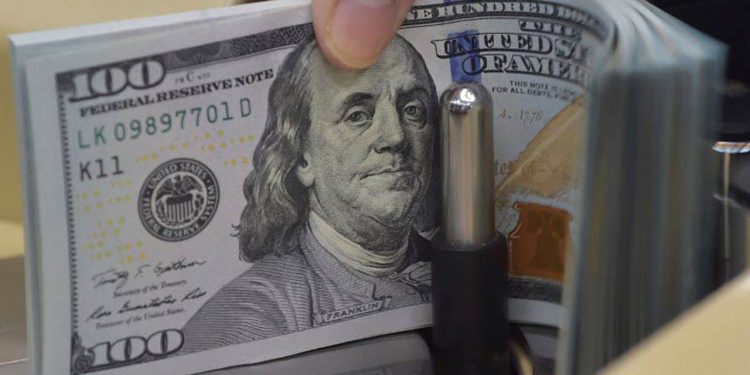After experiencing a week of depreciation, the Nigerian naira made a significant recovery on Wednesday, trading at N1,459.02 per dollar at the Nigerian Autonomous Foreign Exchange Market (NAFEM). This represents a 4.21 percent appreciation from Tuesday’s rate of N1,520.40 per dollar, according to data from the FMDQ Securities Exchange Limited.
The naira’s appreciation was driven by a substantial increase in dollar supply. The volume of transactions between willing buyers and sellers surged by 124.56 percent, with $289.14 million exchanged on Wednesday compared to $128.86 million on Tuesday. This influx of dollars into the market provided much-needed support for the naira, bolstering its value against the dollar.
Despite the overall appreciation, the day’s trading revealed significant volatility in the exchange rate. The intraday high closed weaker at N1,593 per dollar on Wednesday, compared to N1,563 the previous day. Similarly, the intraday low depreciated to N1,401 per dollar from N1,350 on Tuesday, indicating fluctuations in demand and supply throughout the trading session.
In the parallel market, the naira’s performance was mixed. On Tuesday, the local currency closed at N1,530 per dollar. However, it showed signs of strength in certain trading areas, exchanging at N1,520 per dollar, while in other areas, it weakened to N1,550 per dollar. This variability reflects the diverse conditions in different segments of the forex market.
The recent appreciation of the naira follows a period of sustained pressure and volatility. Market analysts attribute the naira’s recent decline to several factors, including speculative trading, demand for dollars to settle international obligations, and uncertainties in the global financial markets. Additionally, Nigeria’s heavy reliance on oil exports makes its currency susceptible to fluctuations in global oil prices.
Efforts to stabilize the naira and improve foreign exchange liquidity have been ongoing. The Central Bank of Nigeria (CBN) has implemented various measures, including periodic interventions in the forex market and policies aimed at boosting dollar supply. These efforts are aimed at curbing speculation and ensuring a more stable exchange rate environment.
The CBN has also urged Nigerians to avoid panic buying of dollars and to rely on official channels for their forex needs. The apex bank has reiterated its commitment to maintaining exchange rate stability and has assured the public that it has adequate reserves to meet legitimate forex demands.
As the naira regains some of its lost ground, stakeholders in the financial sector are cautiously optimistic. The increase in dollar supply and the government’s efforts to stabilize the market are seen as positive steps. However, experts caution that sustained stability will require continued vigilance and proactive measures to address the underlying causes of exchange rate volatility.
Looking ahead, the outlook for the naira remains uncertain, influenced by both domestic and global economic conditions. Market participants will be closely monitoring the actions of the CBN, government policies, and external factors such as oil prices and international economic trends. The ability to maintain a stable and predictable exchange rate will be crucial for Nigeria’s economic stability and growth.











